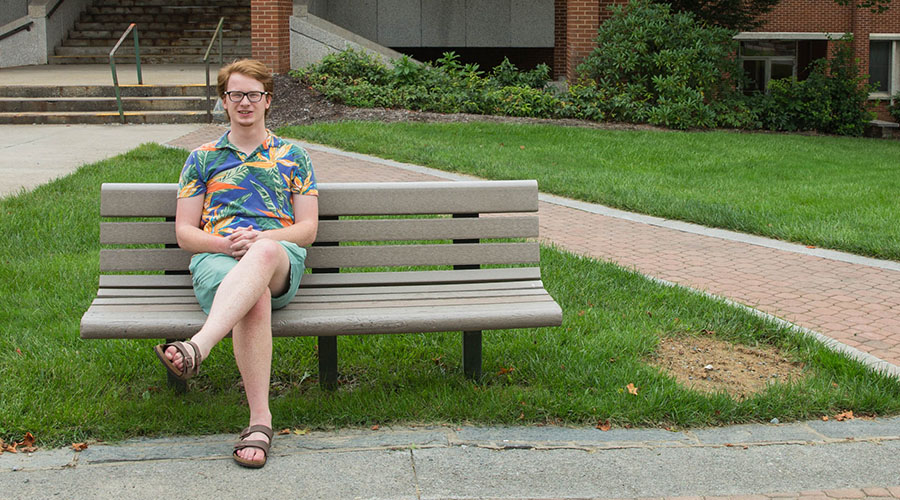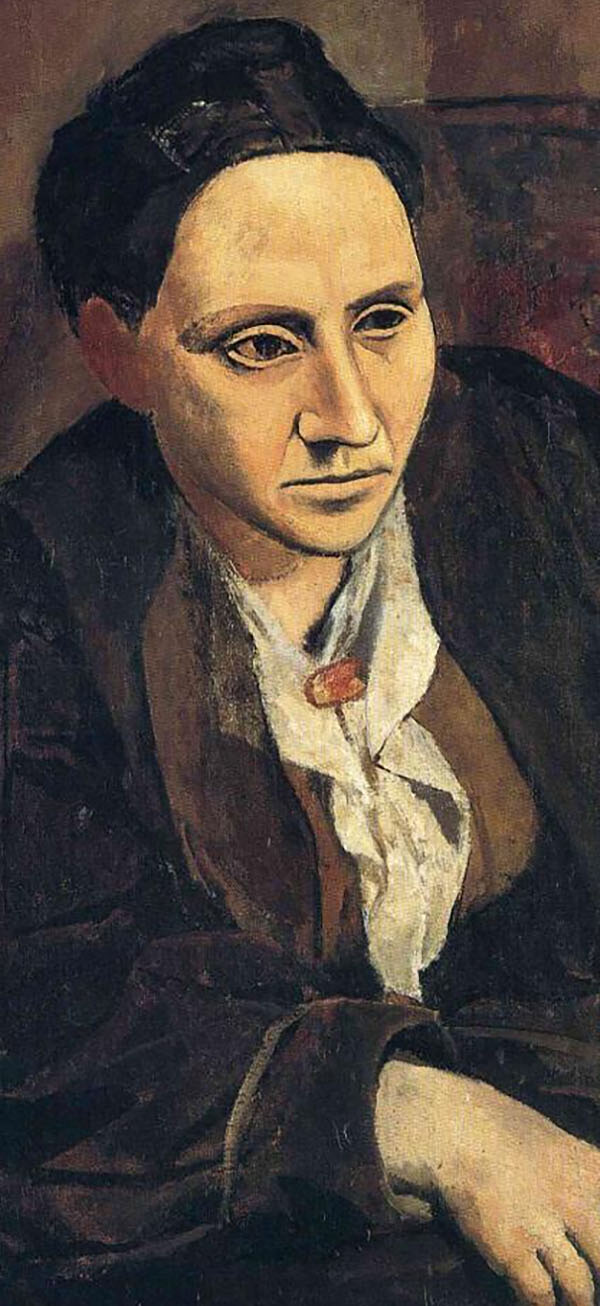BOONE, N.C.—In May, Appalachian State University’s Tommy Young was one of a handful of undergraduates to present at the American Literature Association Conference, in Boston, Massachusetts. As a member of the Gertrude Stein Society, the English major was one of four scholars to present a paper on a panel titled “New Directions in Stein Studies.”
The American Literature Association (ALA) is a national organization, but the event draws an international audience, hosting numerous author societies and presentations. The ALA encourages fellowship, exploration and scholarly interaction among persons interested in the diversity of American authors, their art, ideas and times.
Young, who is from Asheville, is a junior in the Department of English in the College of Arts and Sciences. His interest in English and reading developed at a young age and grew at the encouragement of teachers along the way. After reading a novel by Stein, Young was hooked.
“Times change, but criticism has remained the same,” said Young. “Stein is too often ignored and considered too difficult, but I am fascinated by her style.”
Gertrude Stein, raised by German-Jewish immigrants, grew up in the United States but lived over half her life, from 1903 to 1946, in France. She lived in Paris among other young artists and writers such as Ernest Hemingway, James Joyce, Ezra Pound, F. Scott Fitzgerald, Djuna Barnes and the Cone Sisters (the sisters of Moses Cone, of the Moses Cone Manor in Blowing Rock). It was to Hemingway that Stein coined the phrase “the lost generation” to describe the expatriate artists of the 1920s.
An American modernist author, Stein explored a range of issues about relationships, marriage, identity and queer theory. Her first book, “Three Lives” was published in 1909, followed by “Tender Buttons” in 1914. Her writing was characterized by its use of words for their associations rather than their meanings, which received interest from other artists and writers, but was not followed by a wide audience.
Young explains that Stein’s writing incorporates repetition and limited vocabulary, but each repetition unveils a new layer and a different tone in what is truly, deeply personal work. His presentation, “‘We hear her sentences’: Reading Gertrude Stein’s Matrimonial Autobiography” was a first attempt at explaining the blend of fictional and nonfictional representations he believes to be in her work, which drew both support and disagreement from Stein scholars.
“I have not changed my position on Stein since my presentation, only deepened my belief in what I feel Stein’s work demonstrates. It was really helpful, though, to be at the conference and see how the Stein community is divided along lines of interpretation and to meet people who share my dedication and interest in Stein,” said Young.
Young has been in touch with Stein scholars, spent time searching for Stein family materials and read nearly all her work, which has involved finding rare and out-of-print publications. With support from the College of Arts and Sciences through a SAFE Grant and the Office of Student Research, he spent a semester working on an independent study reviewing microfilms of Stein’s notebooks and manuscripts from the Beinecke Library in New Haven, Connecticut.
“He has a command of Gertrude Stein’s work and scholarship in the field that surpasses what one would expect to find in the great majority of doctoral students – even many full professors,” said Dr. Carl Eby, chair and faculty member of the Department of English. “If he continues with this level of energy and focus, he shows every sign of becoming an important Stein scholar.”
Young shared that his growing interest in not only Stein’s work, but creative writing has been possible due to the supportive and encouraging people in the English department.
“Here [at Appalachian] the professors are helpful, approachable and encouraging for personal success, which has led me to have valuable relationships with my faculty members and I really appreciate that,” explained Young.
As Young moves into his junior year at Appalachian, he will continue to study Stein this fall in another independent study course with Eby.
“When we only talk among ourselves about an author, we don’t bring readers in. The end goal, for me, is not scholarship for an academy, but scholarship that leads to increased readership and interest in Stein,” Young said.
About the Department of English
The Department of English at Appalachian State University is committed to outstanding work in the classroom, the support and mentorship of students, and a dynamic engagement with culture, history, language, theory and literature. It offers Master of Arts degrees in English and rhetoric and composition, as well as undergraduate degrees in literary studies, film studies, creative writing, professional writing and English education. Learn more at http://english.appstate.edu.
About the College of Arts and Sciences
The College of Arts and Sciences is home to 16 academic departments, two stand-alone academic programs, two centers and one residential college. These units span the humanities and the social, mathematical and natural sciences. The College of Arts and Sciences aims to develop a distinctive identity built upon our university’s strengths, traditions and unique location. Our values lie not only in service to the university and local community, but through inspiring, training, educating and sustaining the development of our students as global citizens. There are approximately 5,850 student majors in the college. As the college is also largely responsible for implementing Appalachian’s general education curriculum, it is heavily involved in the education of all students at the university, including those pursuing majors in other colleges. Learn more at http://cas.appstate.edu.
About Appalachian State University
As a premier public institution, Appalachian State University prepares students to lead purposeful lives. App State is one of 17 campuses in the University of North Carolina System, with a national reputation for innovative teaching and opening access to a high-quality, cost-effective education. The university enrolls more than 21,000 students, has a low student-to-faculty ratio and offers more than 150 undergraduate and 80 graduate majors at its Boone and Hickory campuses and through App State Online. Learn more at https://www.appstate.edu.
What do you think?
Share your feedback on this story.





![How NCInnovation Is Rethinking Economic Development in North Carolina [faculty featured]](/_images/_posts/2026/02/rethinking-economic-development-600x400.jpg)







